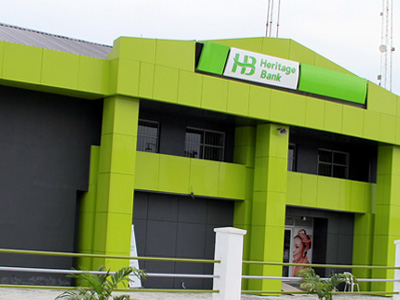
A combination of an increases in net income from other financial instruments at face value and an impairment write back helped Union Bank of Nigeria report a profit before and after tax growth, despite a decline in gross earnings.
According to the audited financials for the year ended December 31, 2018, presented to the Nigerian Stock Exchange (NSE) on Wednesday, interest income and subsequently, gross earnings for the period dropped by 11.19%.
Gross earnings for the period dropped from N163.84bn to N145.52bn, with the lion’s share was the N66.13bn from treasury management, followed by N42.487bn from the retail banking segment, N22.853bn from commercial banking and N15.281bn earned from the corporate banking segment. Of the gross earnings, interest income dropped by 11.39% to N110.37bn, up from N124.55bn; even as the management constrained expenses to N55.02bn, down by 4.95% from N57.88bn. The highest contribution to interest expense was the N29.03bn recorded by the treasury segment, followed by retail banking with N13.815bn, and N8.065bn from corporate banking among others. Net interest income therefore slowed down by 16.98% from N66.67bn in 2017, to N55.35bn.
Net write-back on loan loss stood at N3.37bn, a 113.18% improvement over the N25.61bn impairment charge reported in prior year; while fee and commission income rose 12.89% from N12.46bn to N14.06bn; and fee and commission expense from N2.25bn to N2.47bn, an increase of 9.64%. Net fee & commission income therefore increased by 13.61% from N10.21bn to N11.6bn; just as net trading income dropped 7.88% to N8.41bn from N9.13bn.
Net income from other financial instruments at face value soared by 1,434.81% from N0.36bn in 2017 to N5.56bn; even as other operating income took a 51.07% plunge from N19.6bn in the preceding full-year to N9.59bn.
Non-interest income decreased by 10.55% to N35.15bn from N39.3bn; operating income inched 16.83% from N80.36bn in 2017 to N93.88bn; while net impairment loss on other financial assets stood at N0.38bn from a write-back of N0.29bn, representing a decline of 230.82%.
Personnel expenses rose by 16.94% to N34.56bn from N29.56bn; depreciation of property and equipment rose by 14.2% to 5.22bn from N4.57bn; just as amortization of intangible assets rose 20.19% from N1.47bn to N1.76bn.
Other operating expenses increased by 7.58% to N33.49bn in 2017 from N31.13bn, the highest being the N8.433bn general administrative expenses, up from N6.208bn, followed by N7.275bn paid as Asset Management Corporation of Nigeria (AMCON) surcharge, (representing the bank’s contribution to the banking sector stabilization fund at an applicable rate of 0.5% of total assets and off balance sheet items for year 2018, calculated on a preceding year basis), which was slightly higher than the N7.217bn paid in 2017. It was followed by N4.604bn paid as premium to the Nigeria Deposit Insurance Corporation (NDIC). Total expenses rose 12.46% from N66.73bn to N75.04bn; following which profit before tax rose from N13.92bn in prior year to N18.45bn. The PBT would have been significantly better, but for the N14.563bn loss sustained by the retail segment, while treasury posted N26.119bn profit and commercial banking, N4.046bn.
Net profit increased from N13.01bn to N18.09bn, translating to Earnings Per Share of N0.61, from N0.72, representing a drop of 15.28%.
Total assets rose by a marginal 0.57% from N1.455tr to N1.463tr, boosted by the customer loans and advances of N473.462bn, which dropped from N517.103bn; even as total liabilities improved by 11.34% from N1.112tr to N1.238tr, with customer deposits jumping from N802.384bn to N857.593bn. Shareholders’ funds therefore dropped to N219.356bn from the previous N337.641bn













